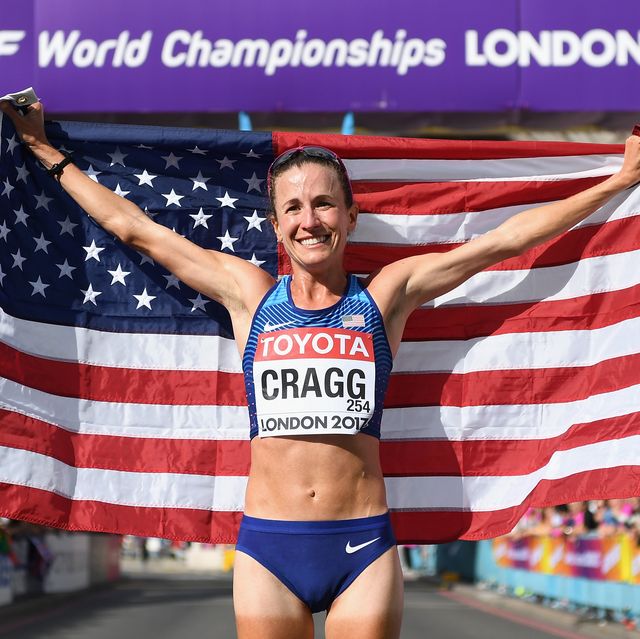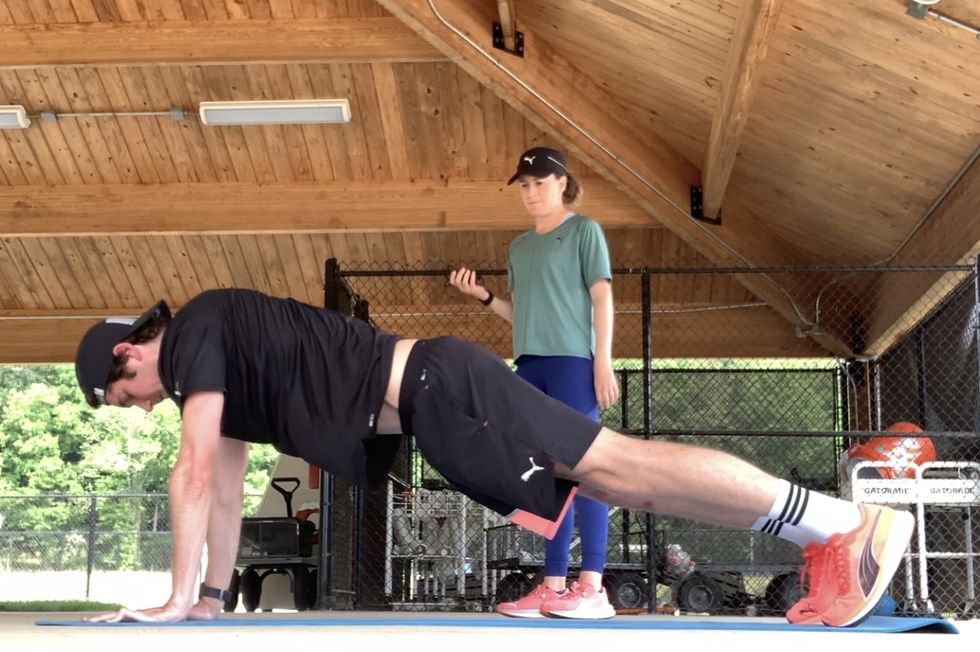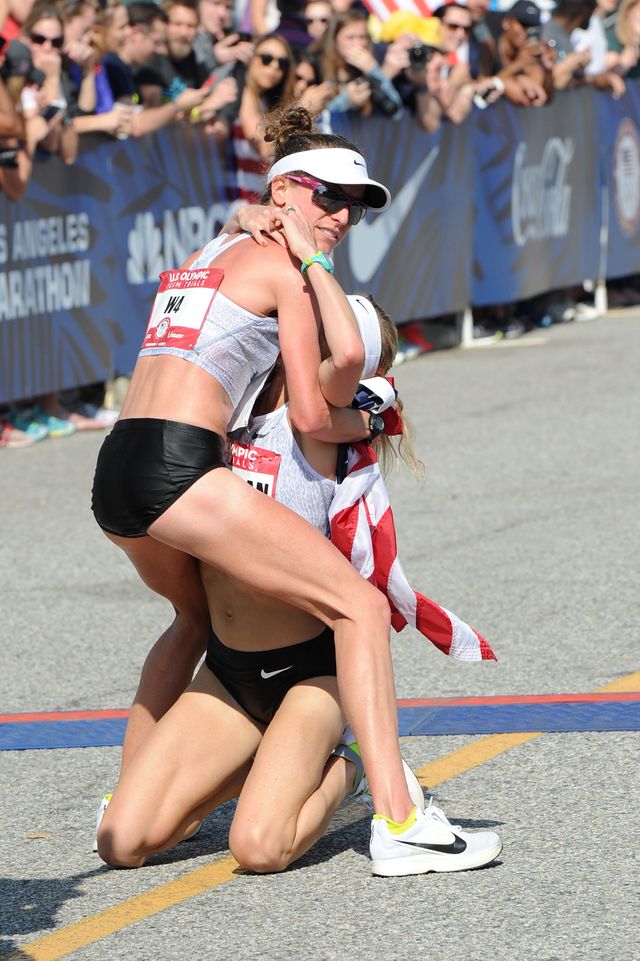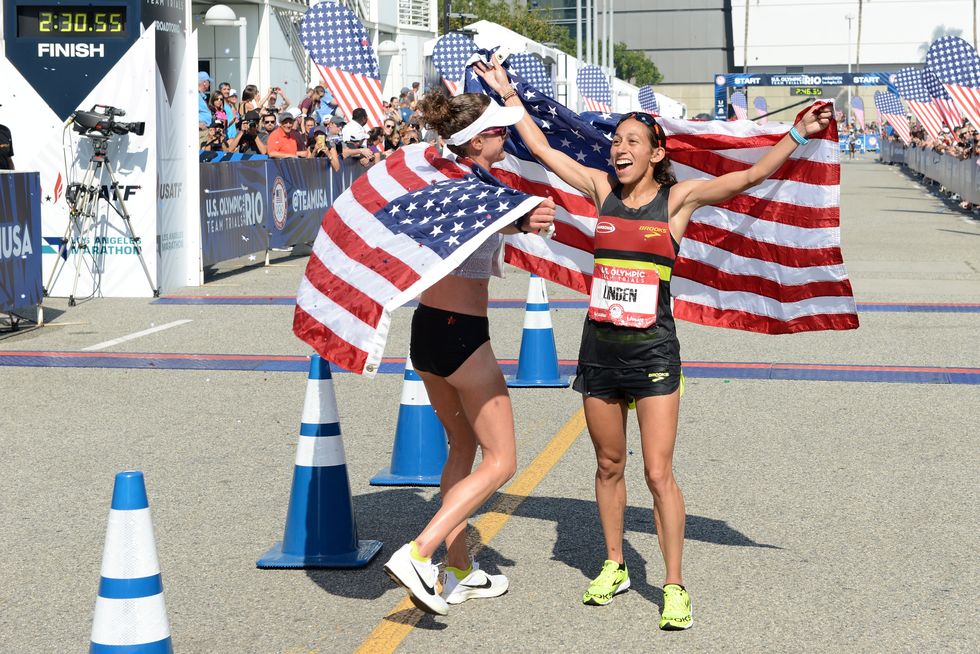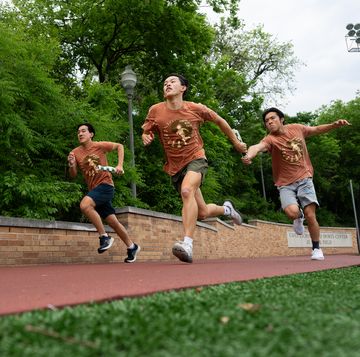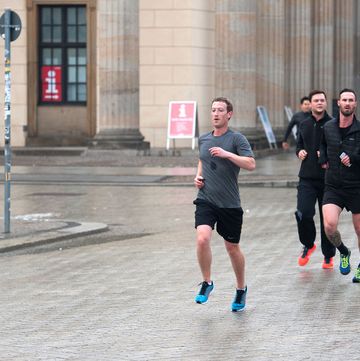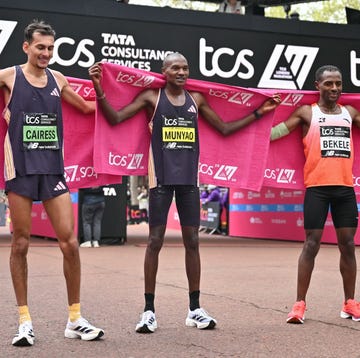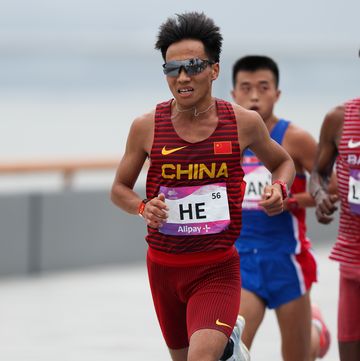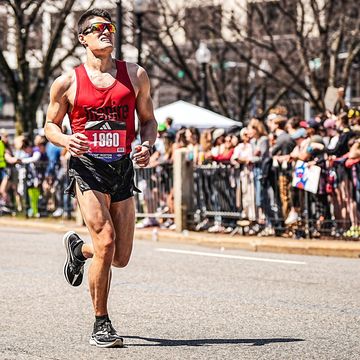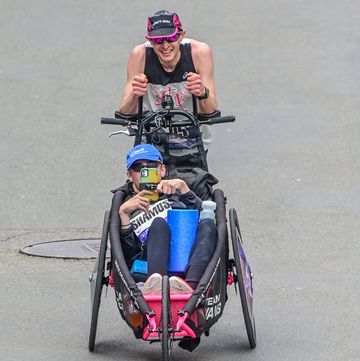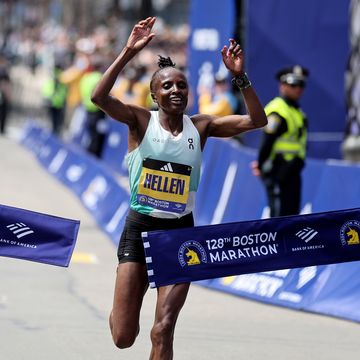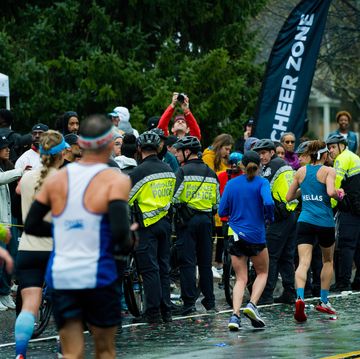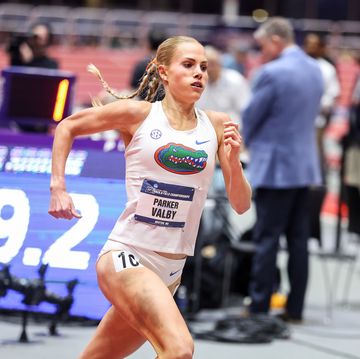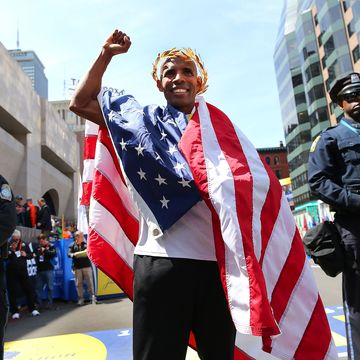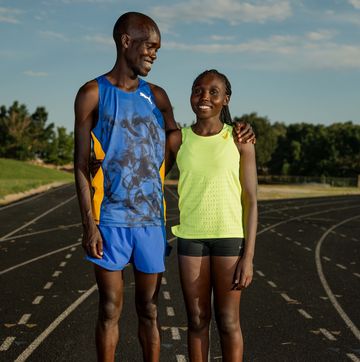- Amy Cragg, who represented the U.S. at the 2012 and 2016 Olympics, is officially retiring from professional running. She is now coaching the Puma-sponsored training group alongside her husband, Alistair, in Chapel Hill, North Carolina.
- Her career highlights include winning the 2016 Olympic Marathon Trials, finishing third in the marathon at the 2017 world championships, and running a 2:21:42 PR in the 2018 Tokyo Marathon.
- Cragg withdrew from the 2020 Olympic Marathon Trials last February, citing illness.
Amy Cragg—who won the 2016 Olympic Marathon Trials, took the bronze medal in the marathon at the 2017 IAAF World Championships, and ran the 2018 Tokyo Marathon in 2:21:42, making her the sixth-fastest American in history at the distance—announced she is retiring from competitive running.
She is now officially a coach with the new Puma-sponsored training group based near Chapel Hill, North Carolina. Her husband, Alistair, is the group’s head coach.
Cragg, 37, said in a phone call with Runner’s World that she took the time she needed to make the decision. “It was definitely time [to retire],” she said. “It’s been great. I’m definitely enjoying life on the other side.”
She had suffered from persistent fatigue over the past couple of years, which kept her from competing at the 2020 Olympic Marathon Trials. Now, she says, she’s feeling well again and running between two and four miles, several times a week, “just to get out there and enjoy it.”
In the summer of 2020, Cragg and her husband drove across the country from their home in Portland, Oregon, where she had trained with Bowerman Track Club for years. They looked at various locations along the way, trying to figure out where to establish Puma’s new training base.
Although they considered different spots at altitude, they ultimately decided the Research Triangle area of North Carolina was ideal for its weather, ease of travel to European track meets and American road races, and the 22-mile, crushed gravel American Tobacco Trail, which has every quarter mile marked. (The Craggs took a wheel out to measure 10 miles of the trail, and the quarters were spot on.)
They also considered medical support in the area, affordability, and job prospects for runners’ significant others.
“I’ve lived in places where people didn’t have a social life or their significant other didn’t have a social life or couldn’t work, and they were depressed,” Cragg said, “and that doesn’t lead to longevity in the sport. We want to create an environment that leads to longevity in the sport. For a lot of people, it takes them a little longer to get there. However long it takes you, we want it to be a good place for that.”
The team currently has Taylor Werner and Fiona O’Keeffe, both of whom are qualified for next month’s U.S. Olympic Track and Field Trials; Steven Fahy, a steeplechaser who currently is nursing a foot injury; and Emmanuel Roudolff-Levisse, a French marathoner. The Craggs—believers in the powers of group training—expect their numbers to grow, albeit slowly.
“We aren’t in a rush to get people,” she said. “We want to get the right people. We’re hoping these are 10-year athletes, not two- or three-year athletes.”
Cragg’s career flourished when she was in her 30s, and she was involved in some of the more memorable moments in Trials history. In 2012, she narrowly missed making the team in the marathon, finishing fourth at the Trials in Houston behind Shalane Flanagan, Desiree Linden (then Davila), and Kara Goucher.
But Cragg (then Hastings) turned her attention back to the track and won the 10,000 meters at the 2012 track trials to earn her first trip to the Games. At the Olympics in London, she finished 11th in 31:10.69, her personal best.
Four years later, at the 2016 Olympic Marathon Trials in Los Angeles, Cragg and training partner Flanagan ran stride for stride together, breaking the race open before the halfway point. But by the 23rd mile, Flanagan was struggling in the heat. Cragg slowed to stay with her, urging her onto the finish. With less than two miles to go, and Linden lurking in the background, Cragg finally left Flanagan and won the race in 2:28:20, waving her visor as she broke the tape.
Linden was second, in 2:28:54, and Flanagan willed herself across the line in third in 2:29:19, where she collapsed and was carried off the course. In Rio, their finishing order was reversed: Flanagan was sixth, Linden seventh, and Cragg ninth, the best collective performance by any country’s three athletes in the event. (The 2016 gold and silver medalists are currently serving suspensions for anti-doping violations.)
Training at times up to 130 miles per week with the Bowerman Track Club in Portland, Cragg qualified for the world championships in 2017 in London. At the race, she moved into third place with 400 meters and sprinted to a bronze medal.
Cragg said that was her top moment as a professional runner. “It kind of just made my entire career worthwhile,” she said.
Seven months later, in Tokyo, she ran her lifetime PR, 2:21:42, taking nearly six minutes off her previous best and putting her among the country’s top runners in history.
Cragg’s world championships bronze marked a renaissance of sorts for American women’s distance running. In Chicago in 2017, Jordan Hasay ran 2:20:57, Flanagan won the New York City Marathon in 2017, and Linden won Boston in 2018.
But after Tokyo, Cragg experienced a series of health setbacks and never was able to regain her top form for a marathon. She ran 15:54 5K in New York in November 2018 and finished third at the U.S. 5K championships, but she raced only twice in 2019. Both races—a 10K and a half marathon—were far from her best. She had planned to run the Chicago Marathon, but pulled out in the summer.
In an interview with Runner’s World at the time, Cragg talked about the fatigue she felt. “I think we just went too hard for too long,” she said. “I ‘cooked myself’ is what I’ll say. Took some time off when we realized it wasn’t coming around for Chicago. Now I’m feeling a lot better and ready to go.”
But citing illness, she withdrew from the 2020 Olympic Marathon Trials in February in Atlanta.
Her only race results from 2020 were pandemic-era intrasquad meets put on by her Bowerman Track Club at a high school track in Portland. Cragg ran a few 400s and 800s at slow paces—seen as fulfilling contractual obligations.
Her peers had nothing but praise for her.
“I’m thrilled for Amy. She’s had a tremendous career,” Linden, who first met Cragg when they were undergraduates at Arizona State University, told Runner’s World in a text message. “If people could have eavesdropped on our long run conversations during our ASU days, they would have laughed at how audacious our goals were. It’s been incredible to watch her check them all off one by one and then accomplish even more. I’m grateful that while being in a hyper-competitive career, Amy’s been able to remain a friend, and I know we’ll have many more conversations about her future goals.”
Shalane Flanagan wrote in a text, “I’m so happy for her. She was a wonderful teammate and one of the toughest athletes I got to train alongside. I treasure all the time spent together chasing big goals and dreams.”

Sarah Lorge Butler is a writer and editor living in Eugene, Oregon, and her stories about the sport, its trends, and fascinating individuals have appeared in Runner’s World since 2005. She is the author of two popular fitness books, Run Your Butt Off! and Walk Your Butt Off!
